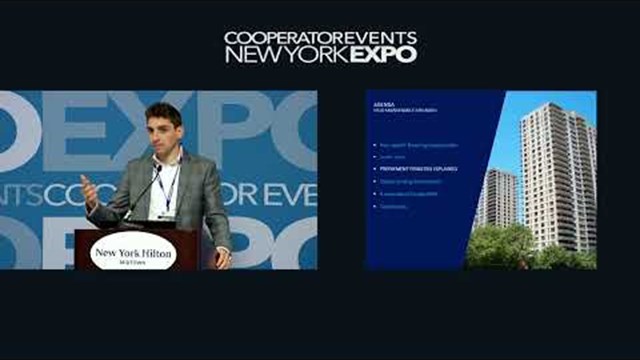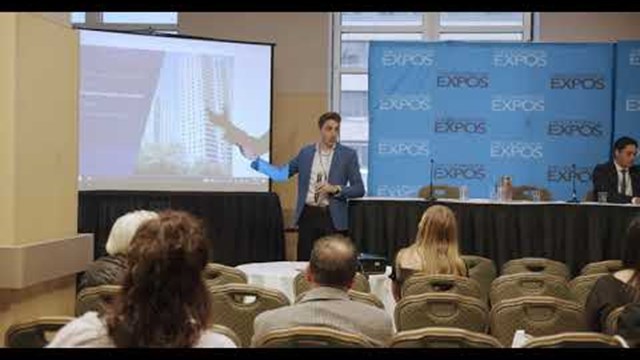
Nearly 100 percent of New York City co-ops have an underlying mortgage of anywhere from a few thousand dollars to millions of dollars. If you own a co-op, having an additional multi-million dollar mortgage hanging over your head might sound like an alarming prospect. You might be surprised to learn that while homeowners generally pay off their own mortgages in 30 years or less, very few co-ops have paid off their underlying mortgage. Because of that, many buildings are forced to refinance when the term of their current loan comes to an end. Co-op board members looking to refinance will then turn either to a mortgage broker or a mortgage banker (or lender) to lead them through the process and obtain the financing they need.
What’s the Difference?
While the broker is a classic middleman, the mortgage lender is the actual source of financing. Most co-op boards will be better served by going through a broker, who will then select the lender who offers the most appropriate product. Only boards that have been through the process recently and know the financial product they need are advised to work directly with a mortgage lender.
Brokers, as their name implies, have a handful of different lenders to go to for your loan. This range of options can work in favor of a co-op board that may need non-traditional financing (i.e., one that has a poor financing history).
Keep in mind that mortgage brokers who can finance an underlying mortgage are almost never the same individuals that handle mortgages for individual apartments. You are unlikely to be able to use the same mortgage broker that helped you finance the purchase of your apartment to help your board refinance your building.
Usually a single individual from a co-op board or its management company will set the financing process in motion by making a few calls to select the mortgage broker with the right combination of skills and personality for their building’s needs. Many board members who are new to the financing process harbor suspicions of their broker, worrying about his or her motivations or true interests. However, there is no cause for distress. The broker will generally negotiate his or her fee with you early in the process. The board is usually responsible for covering that fee, but it is a small price to pay for the professional advice and service the broker provides.
Selecting a Lender
Once you’ve selected a mortgage broker, they will begin to determine what your financing needs are by asking a variety of questions such as:
• Are you seeking complete refinancing, or only a line of credit for emergency repairs?
• Do you prefer a short-term loan with a long-term amortization schedule, or a long-term fixed rate mortgage?
• Do you need to include provisions for capital improvements in the loan?
A good broker will have relationships with lenders that can satisfy any of these needs. He or she will also help you choose the most appropriate financing option for your building and set up exploratory meetings with lenders. Try to meet as many lenders as you can—and certainly interview no less than two. Most mortgage lenders will welcome any chance to sit down with you to discuss your financing.
The next meeting in the process is a chance for the entire board, or at least a quorum, to interview your broker and the selected lender and discuss whether to go forward with an application. Because personalities sometimes clash, these meetings can, at times, be stormy. The best thing for the board to do is listen to what the experts have to say and ask them pointed questions when necessary. Keep one thing in mind, your mortgage broker is as interested as you are in the best possible result: a successful closing of an appropriate loan.
The broker takes the next step in the financing process on your behalf by submitting the loan application to the lender. At this point, a few expenses arise that the co-op will be responsible for. The most significant is the series of third-party reports that the lender requires before approving the loan. Typically, these include an appraisal; a “Phase I” report, which deals with lead paint, radon, asbestos and soil conditions; and an engineering report on the quality of the physical plant and the building’s condition. Together these reports generally cost from $10,000 to $25,000, and take 30 to 45 days to complete.
Unfortunately, you usually can’t get these reports out of the way earlier in the process. The lender you select will hire the consultants that prepare the reports and will often not accept reports that you have arranged on your own.
The second expense that will arise is for the preparation of an up-to-date financial statement, which must be no older than six months. This will include evidence of the owner-occupancy rate, and will be prepared by your accountant or management company.
Big Decisions
One of the big decisions a co-op board member will have to make when refinancing a mortgage is the choice of loan type and term. Should you bet on interest rates and take out a 10-year loan, leaving it to a successor co-op board to refinance a decade later? Or should you instead lock in today’s rates for a long-term mortgage of 30 or 35 years, reducing the frequency with which your building will have to go through the difficult refinancing process?
If you are seeking a long-term underlying mortgage, consider a loan insured by the U.S. Department of Housing and Urban Development (HUD). While other agencies, such as Fannie Mae, have programs for 10, 20 and even 30-year mortgages, HUD will insure loans with terms as long as 35 years.
HUD-insured loans do sometimes take longer to process, and in some cases, a HUD-insured loan can have greater value.
You may also want to improve the long-term financial security of your building by obtaining a self-liquidating loan whose principal, as well as interest, is paid off throughout the loan’s term. This is a vast improvement over one common alternative: a mortgage with a 10-year term but a 20-year amortization schedule.
In the latter case, your building will make payments for the 10 years of the mortgage’s term, and will then owe the bank the entire remaining value of the loan, which is the equivalent of 10 more years of payments. Your building will have to roll that amount into the principal of the next mortgage it takes out. This is why the 35-year self-liquidating mortgage, at a slightly better rate, could save hundreds of dollars per month for the co-op shareholders.
The Closing
If the lender decides to go ahead and finance your loan, he or she will send you a commitment letter a few weeks after receiving your application. This document states the lender’s terms for the loan and lists a series of conditions before the loan can close. A condition can be as simple as completing the already-prescribed inspections, or as costly as containing asbestos or repairing cracked entryway stairs.
A fairly predictable group of individuals needs to be present at the closing. This includes the attorney for the co-op, a representative of the title company, the attorney representing the lender, the mortgage broker, and the co-op board president. At the closing, fees will be paid out to the broker and the lender, and the co-op will be reimbursed out of the loan for the cost of the third-party inspections.
Clear your schedule, because the closing can take anywhere from the better part of a day to several days. The closing cannot be completed until the funds are actually in-hand, and the title company has recorded the note at the courthouse. That means a lot of time is spent sitting around chatting and waiting for things to happen.
It is important to remember that the results of refinancing can directly affect a building’s balance sheet. More noticeable to residents, refinancing can also have a direct impact on the size of their monthly maintenance payments. Almost all lenders require that during a refinancing, buildings should set aside a certain amount per apartment in a reserve fund, if repairs or maintenance becomes necessary during the loan term. Finally, the resale prospects of every unit in the building can hinge on the satisfactory refinancing of the underlying mortgage.
With so much riding on the refinancing of your mortgage loan, it is very important to carefully choose the right broker to represent you. Assuming a qualified professional is chosen, the mortgage broker will be an invaluable source of advice and information for a co-op board. n
Charles Ciolino is a former senior executive at the U.S. Department of Housing and Urban Development (HUD).






Leave a Comment